Gen Z shop more frequently but Millennials spend the most, E-Commerce Trends report reveals
Marios Ioannou 07:10 - 01 November 2024
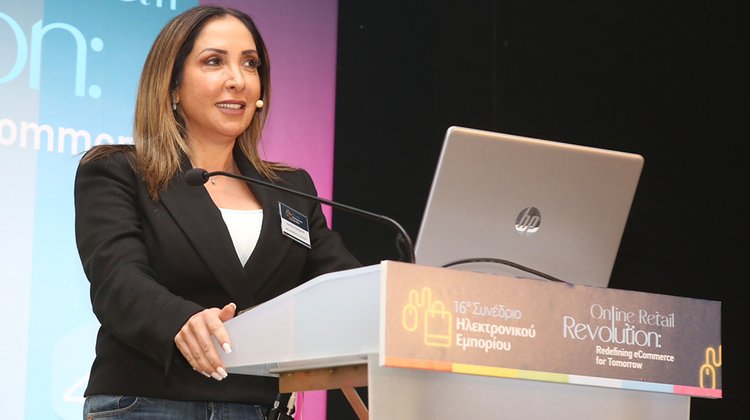
Having been born when the Internet was already well-established, Gen Z may be shopping online more often than other generations, but people born before 1996 are spending the most.
At the same time, the majority of consumers under 60 have embraced buying online, while each generation maintains different shopping habits.
These and other interesting conclusions have emerged from the Insights Market Research report prepared by IMR/University of Nicosia™ and entitled 'e-Commerce and Consumer Behaviour: Analysis of preferences, trends and shopping habits.' The research findings were presented by Christina Kokkalou, Founder and Managing Director of IMR/University of Nicosia™, in the context of the 16th E-Commerce Conference.
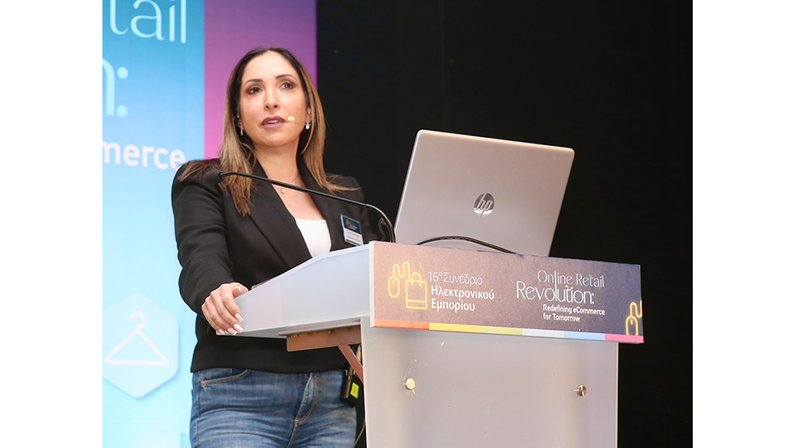
- According to the report, eight out of ten consumers under the age of 60 shop online, a finding that confirms the global trend towards a shift away from traditional forms of commerce.
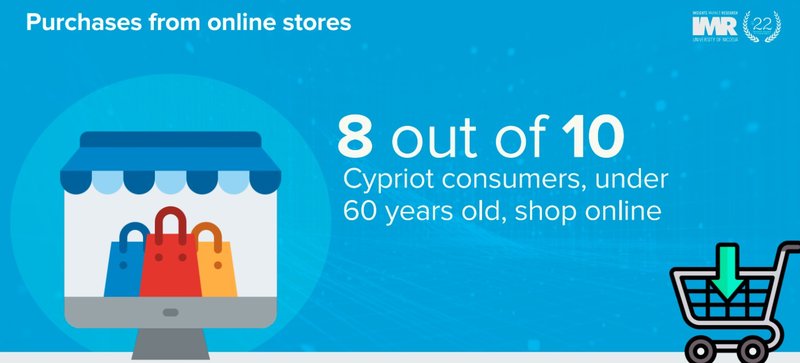
- It is also worth noting that among the three age groups examined, a greater percentage of Gen Z (usually considered to be those born between 1996 and 2012) shop online compared to older consumers. Next are Millennials (those born between 1981 and 1996).
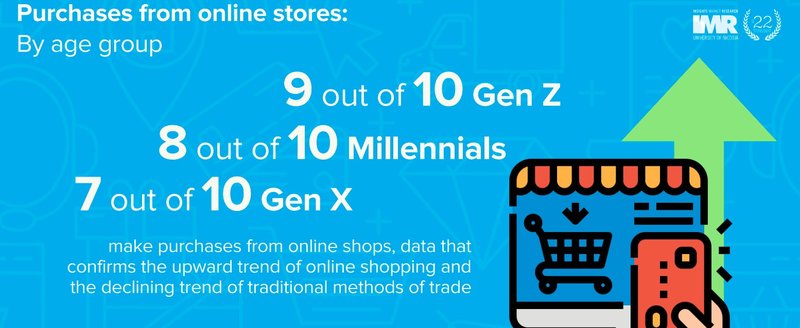
- Although Gen Z shop online much more often (in certain product categories) than the other two age groups, the value of their purchases is significantly lower than the purchases made by Millennials and Gen X (i.e. those born between 1965-1981).
- Besides, Gen Z seems to have quite diversified buying habits, as they are more influenced by social media content, reviews from other users, as well as recommendations from influencers. It is worth noting that Gen Z appear more familiar with using AI tools during their shopping compared to Millennials and Gen X.
- For consumers, making online purchases is a step-by-step process of market research that includes searching for the product, seeing how it was rated by other users, visiting stores and comparing prices. The speed of the internet allows consumers to complete, within minutes and from wherever they are, a process that would traditionally take much longer.
- Therefore, convenience and comfort - inevitably - are rated by the vast majority (78%) as one of the most important reasons why they resort to online shopping. In addition, 66% prefer online shopping because it provides best prices and 58% because of the greater variety of products available.
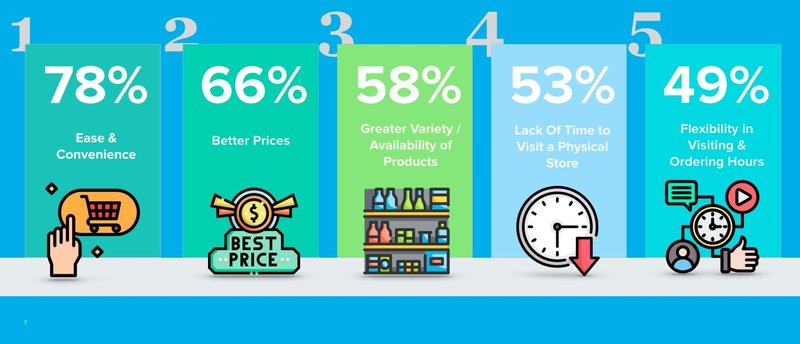
- Analysing further, there are several parameters that influence consumers' decisions regarding the online stores they choose. The most significant ones concern the ease of use of the website, the security of purchases (with the possibility of refunds or replacement of products), the available information about the product, the evaluations by other users, and the possibility of free shipping.
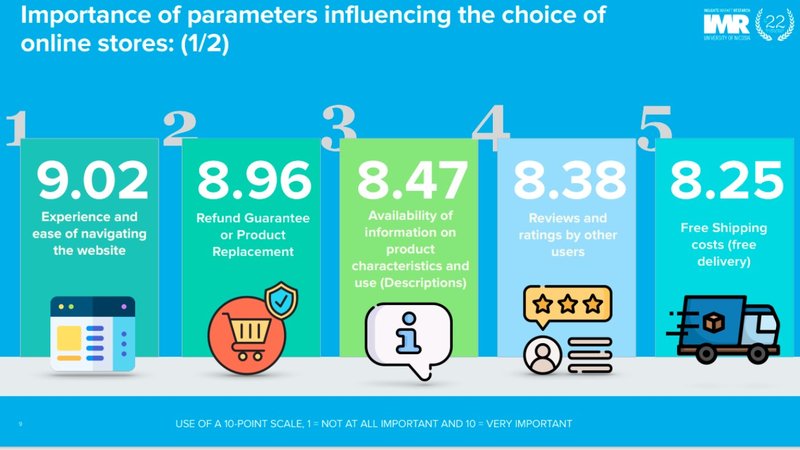
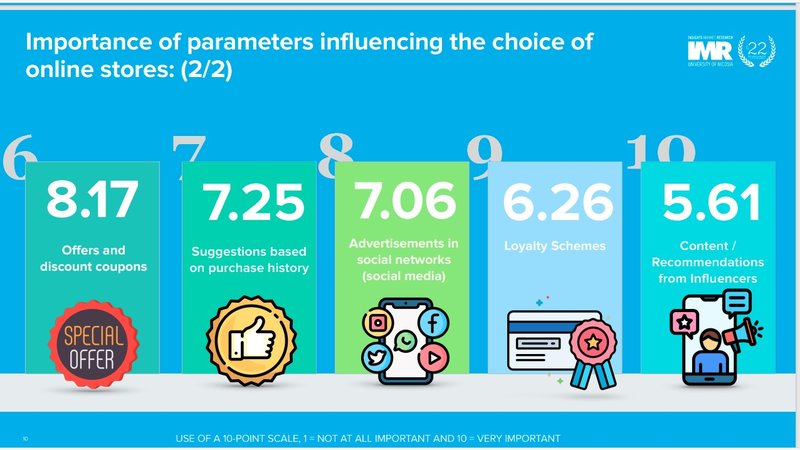
- It is also highlighted that nine out of ten consumers shop in the food & beverage and fashion & clothing categories. Particularly popular for online shopping is the category of electronics & technology, from which seven out of ten consumers make purchases.
- In addition to attracting the most consumers, the three categories seem to manage to extract the highest purchase amounts from consumers' available budget.
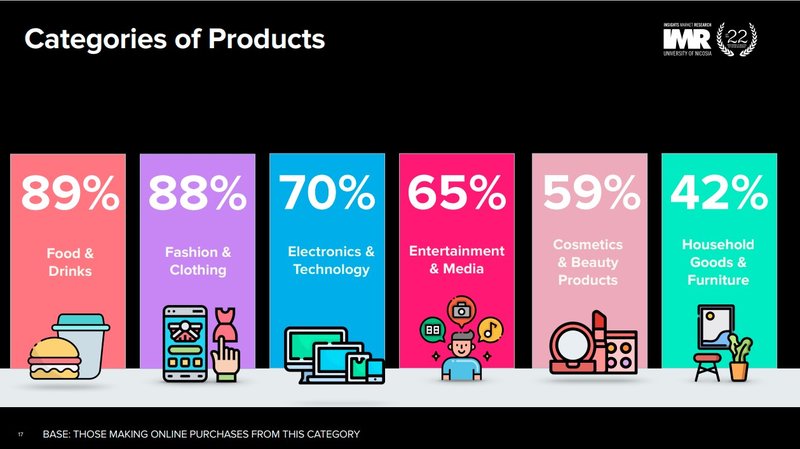
- In terms of spending on shopping, it is worth noting that Millennials seem to be the "big spenders" when it comes to online shopping, as they have the highest shopping spending in four of the six categories examined. At the same time, Gen X spends the most money in the other two categories.
- The use of AI technologies in e-commerce services, although not yet directly perceived by consumers, is recognised as positive in terms of facilitating their purchases. With familiarity, experience and the introduction of new, innovative technologies, artificial intelligence can give an even greater boost to e-commerce.
(Source: InBusinessNews)

